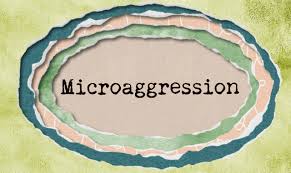
Microagressions and how to deal with them.

30
Apr
by Suzie
Business Owner & Senior HRBP
In This Category
Other Categories
- Breathing Space HR
- Management
- People Management
- HR
- Employment Law
- Employee Engagement
- Leadership
- Employee Wellbeing
- Mental Health
- Managing Performance
- Suzie Says...
- Employee Experience
- Community Engagment
- Employee Development
- Uncategorised
- Diversity & Inclusion
- Redundancy
- Absence
- Family Leave
- HR Strategy